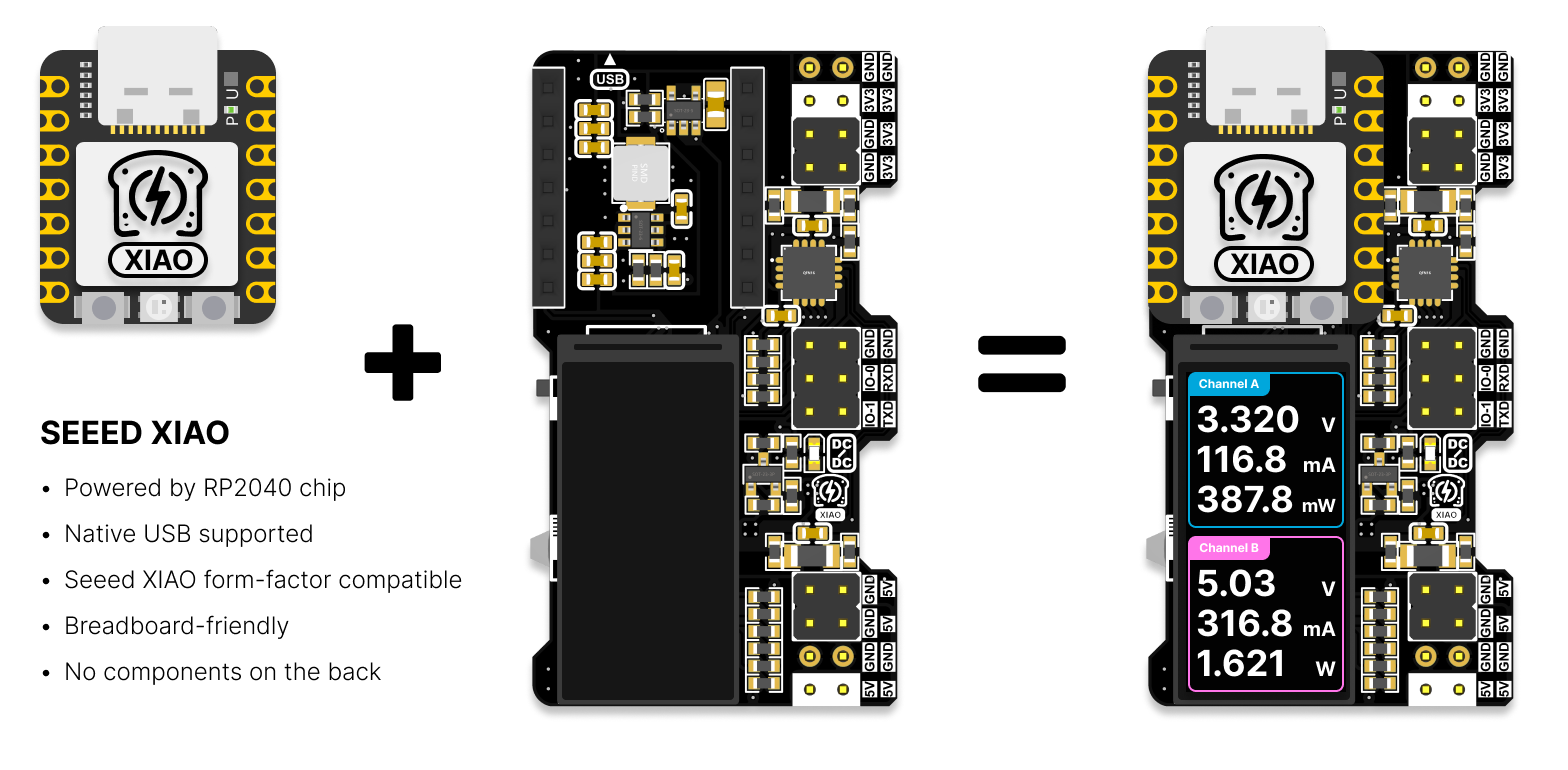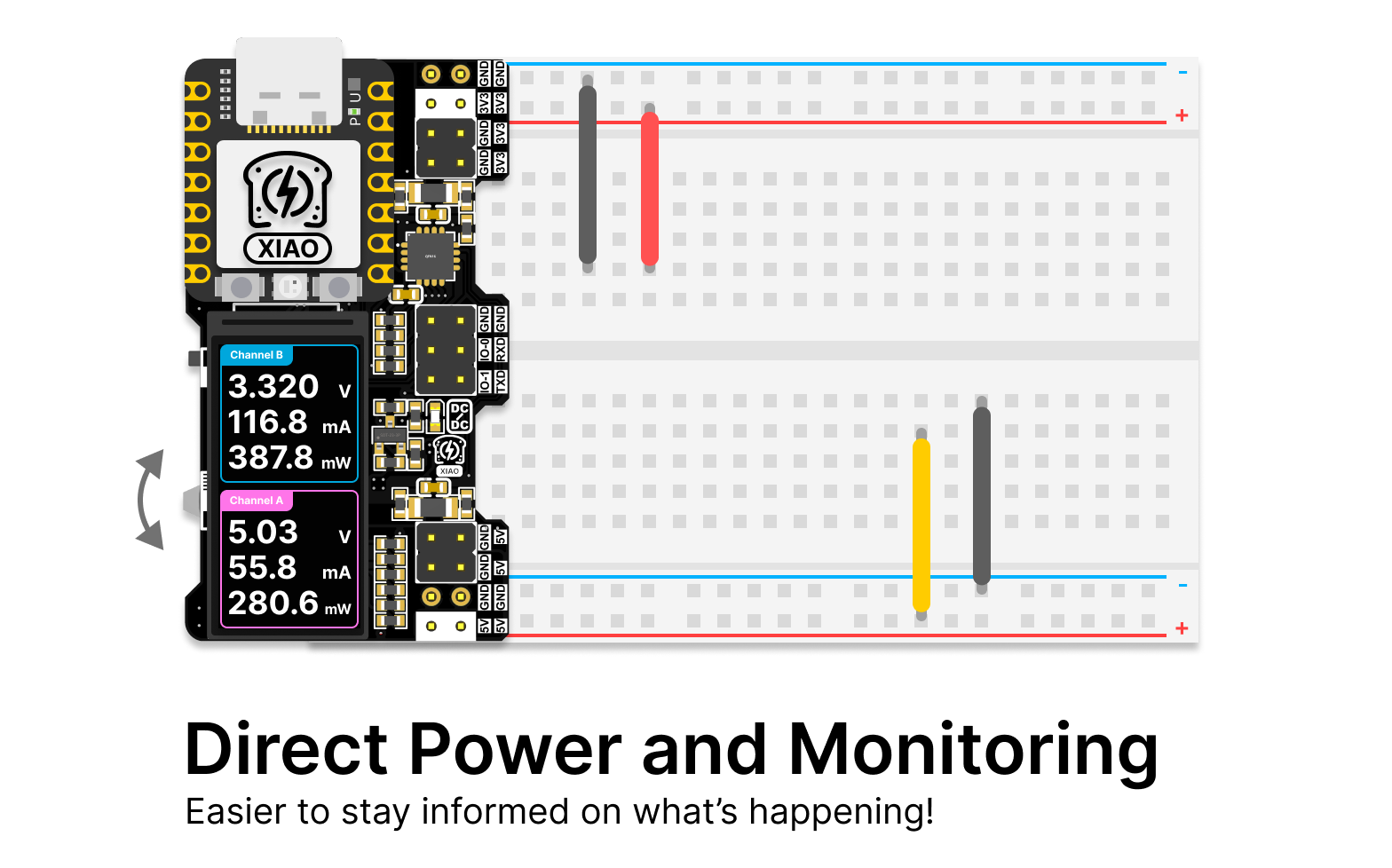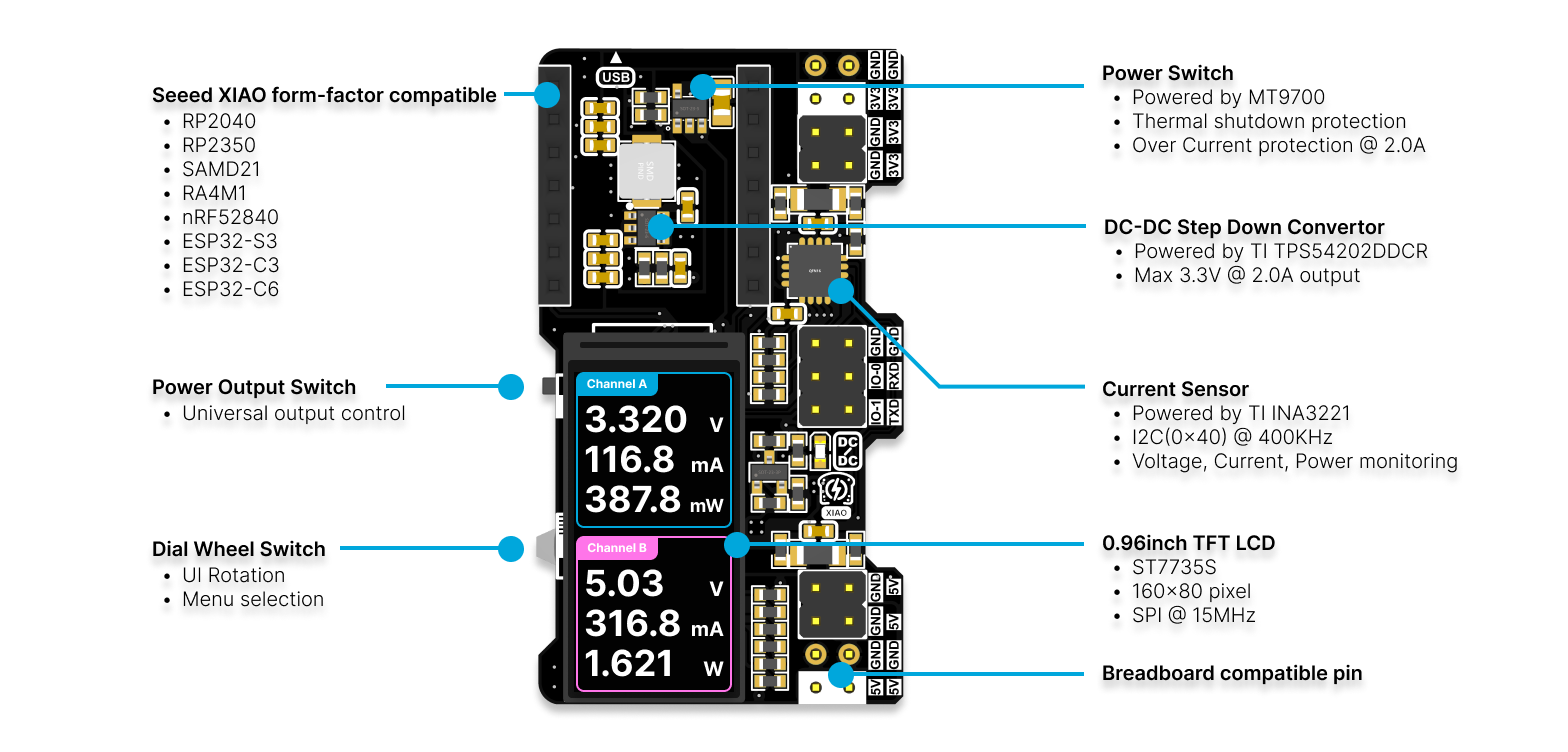
Key Features
- Real-Time Monitoring: View essential power metrics at a glance—no multimeter needed. The built-in display shows real-time voltage, current, and power data.
- High-Current Output: Deliver up to 1.5A of stable 3.3V power, ideal for most breadboard-based electronics projects.
- Built-in LCD Display: Stay informed with real-time feedback—critical power data is displayed clearly on the integrated LCD.
- Plug-and-Play Design: Compatible with standard breadboards, simply plug in, power up, and start prototyping without extra setup.
- Open-Source and RP2040 Powered: Powered by the RP2040, this open-source design provides flexibility for future extensions like USB-serial communication and PWM control.
- Dual-Channel Voltage and Current Sensing: Equipped with the INA3221 sensor for dual-channel voltage and current monitoring—know what’s happening with every aspect of your power supply.
- Compact Powerhouse: This compact design delivers both 3.3V and 5V outputs, optimizing your breadboard space without compromising on power.

Hardware Specifications
- Input Voltage: Powered via USB-C through the XIAO.
- Output Voltages: Provides 5V and 3.3V outputs, with a maximum current of 1.5A for the 3.3V rail.
- Current Sensing: The built-in INA3221 sensor measures voltage, current, and power for real-time display.
- Microcontroller: Driven by the RP2040, handling sensor data, display control, and enabling future features like USB-serial communication and PWM generation.
- Display: LCD screen for real-time power monitoring.
- PCB Dimensions: Designed for seamless integration with standard breadboards while minimizing space usage.

Getting Started
Hardware
- XIAO Board: The XIAO RP2040 is recommended, though other XIAO boards should work as well.
- XIAO PowerBread Board: Clone or remix the design from this repository. (Future hardware may also be available on Tindie if needed.)
- Breadboard: Fits standard breadboards for easy prototyping.
- Power Supply: Use a standard USB power source.
Software
- Arduino Code: Modify or remix the project using the provided Arduino source code.
- This code is built on top of freeRTOS from the Arduino Pico SDK. It has 4 tasks:
- Task for reading current sensors (INA3221).
- Task for reading dial value from A2 pin of XIAO.
- Task for updating data to LCD.
- Task for handling dial functions, such as changing the rotation of the UI.
- This code is built on top of freeRTOS from the Arduino Pico SDK. It has 4 tasks:
- Bin File: For XIAO RP2040 users, download the precompiled bin file and flash it via UF2 for quick setup.
Planned Software Features
- [x] Real-time current sensor data displayed on the LCD.
- [x] Dial wheel to adjust the UI for different viewing angles.
- [ ] Line chart mode to visualize power usage for each channel.
- [ ] USB-Serial mode for data transfer.
- [ ] PWM output on IO0 and IO1.
- [ ] ADC reading from IO0 and IO1.
Libraries Used
Contributing
Contributions are welcome to improve the XIAO PowerBread project! Whether you want to submit a pull request, propose new features, or report a bug, feel free to use the issue tracker.
 nichod
nichod